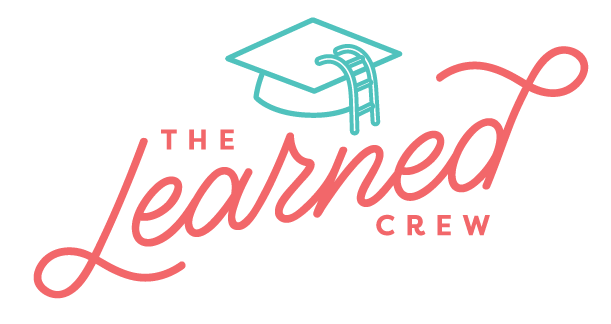In conversation with Caryn Sandler (partner at G+T)
In this blog post we speak to an incredible talented and inspiring colleague of ours, Caryn Sandler. Caryn is a partner at G+T and is Chief Knowledge & Innovation Officer, which means she works on legal innovation, legal ops and transformation (aka all the interesting stuff)! Caryn is an award winning lawyer, and has recently been announced as a finalist in the Women in Law Awards 2019 for Innovator of the Year and Legal Operations Professional of the Year. She speaks about her stellar career so far and gives some pearls of wisdom to law students of today.
TLC: Tell us about your journey to how you got to where you are
CS: My career started as many do in the legal industry but then followed a rather non-traditional trajectory. I started out as a summer clerk at Mallesons (now King & Wood Mallesons) and began my graduate training in their large transactional teams – Funds, Corporate and Banking. I eventually settled in the Corporate team where my focus was on public and private M&A and Equity Capital Markets. Wanting to broaden my experience, I moved to London to work for Clifford Chance LLP. I believe that this overseas stint made me a more versatile and well-rounded practitioner and offered invaluable insight into other legal markets. It also allowed me to travel Europe which was amazing.
After returning to Australia and starting my family, I joined Gilbert + Tobin as a senior knowledge lawyer in our Corporate Advisory team – working part-time. I was sought after by partners across the firm due to the skillset I had developed in all aspects of corporate transactional work, including private and public M&A, joint ventures, capital raisings and corporate restructures. After 5 years in this role, I was promoted to Head of Knowledge Management, then Head of Legal Service Innovation, and finally Chief Knowledge & Innovation Officer – all in the space of 18 months. In recognition of the importance placed on innovation by Gilbert + Tobin, I was elevated to a full Equity Partner in July 2018.
I steer the strategic transformation journey of our firm and lead a dedicated Legal Service Innovation team of over 60 professionals skilled in transformation, legal project management, knowledge management, informatics, managed services and technology. My team’s prime mandate is to support and re-engineer the delivery of legal services by leveraging innovations in technology and process, providing value to our lawyers, the firm and our clients. Last year, we formalised how we bring this service to clients, offering bespoke consulting in legal operations, technology and innovation to in-house teams through G+T Innovate. We have worked with many large multinational corporate legal teams to assist with their internal transformation, having recently travelled to the US, Asia and South America to facilitate ‘capability’ workshops across a global legal team. We now enjoy a reputation as Australia’s most innovative and technologically-focused law firm, and I frequently am called on to speak at conferences and mentor other emerging leaders in this space.
People often ask me what my typical day looks like – there is no ‘typical’ day in my work week, it’s a mix of attending lots of meetings with my team, lawyers and clients, keeping up-to-date with technology solutions (both market and internally developed), process mapping, testing technology, facilitating workshops, developing proposals, speaking at conferences and the list goes on.
TLC: What do you think are the key skills that lawyers of the future must possess?
CS: I think the answer to this is perfectly laid out in the ‘T-Shaped Lawyer’ model developed by Peter Connor. Gone are the days where legal expertise and commercial acumen alone will fuel your career journey, and a number of non-traditional skillsets are now seen as highly attractive to employers. Among these are design thinking, project management, technology & data literacy and change management. The model does not suggest that the lawyers of tomorrow must be experts in each area, but rather have a working familiarity of each that you can use to complement your deep legal knowledge and skills. I wholly subscribe to this thinking and this is what we are focusing on at Gilbert + Tobin.
I actually think that the need to have a deep understanding of legal is more essential than ever – with technology now capable of removing some of the low-value, repeatable work, junior lawyers will be required to engage in far more high-value and challenging legal work from an earlier time in their career.
TLC: What is your one piece of advice to law students of today?
CS: Successful lawyers will need to be open to change, even if this is uncomfortable. The pace of change in our industry has accelerated, and tomorrow’s lawyers will need to be nimble and able to adapt quickly. I think law students have a fresh perspective on ways of working, so I would encourage them to always think about continuous improvement and ways in which their work can be done in a more efficient way, to challenge the status quo. Focus on the client and how you can solve their problems and become a true partner to them. Be curious and immerse yourselves in the changing legal landscape and evolving technology. This is an exciting time to be a lawyer, so I would encourage law students to embrace the opportunity.
“I actually think that the need to have a deep understanding of legal is more essential than ever – with technology now capable of removing some of the low-value, repeatable work, junior lawyers will be required to engage in far more high-value and challenging legal work from an earlier time in their career. ”

